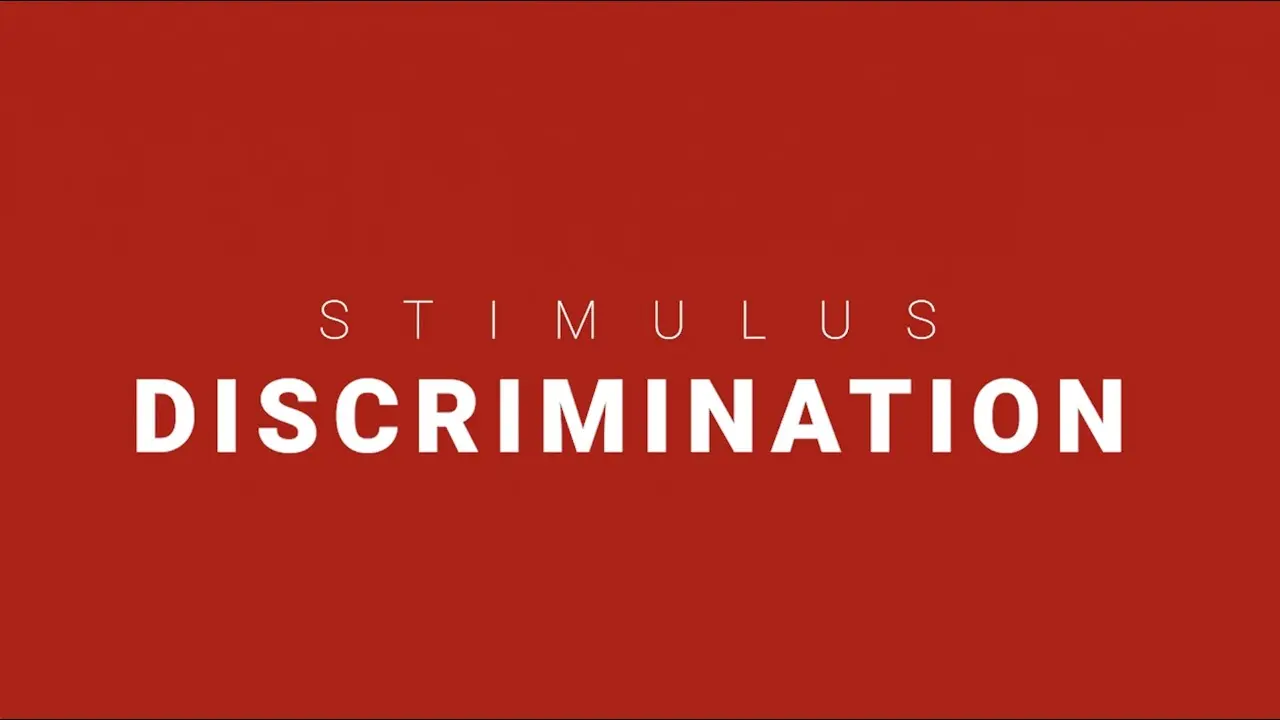Stimulus discrimination refers to the ability to differentiate between similar stimuli and respond differently to each of them. It is a fundamental concept in psychology and learning theory, where organisms learn to perceive and respond selectively to specific environmental stimuli. Stimulus discrimination is crucial in various human and animal behavior aspects, including classical and operant conditioning. In this article, we will discuss What is Stimulus Discrimination and we can gain insights into how organisms perceive.
The Importance of Stimulus Discrimination
Stimulus discrimination is essential for adaptive behavior and survival. Individuals can respond appropriately and effectively in various situations by distinguishing between different stimuli. It allows us to recognize and react differently to other cues, enabling us to make accurate judgments and decisions.
Factors Influencing Stimulus Discrimination
Several factors can influence stimulus discrimination, including the following:
-
Classical Conditioning
Classical conditioning, a type of learning in which an organism associates stimuli, can influence stimulus discrimination. An individual learns to respond differently to each stimulus through repeated pairings of incentives, resulting in discrimination.
-
Operant Conditioning
Operant conditioning, another form of learning where behavior is strengthened or weakened by consequences, can also impact stimulus discrimination. By reinforcing desired responses in the presence of specific stimuli, individuals learn to discriminate and respond accordingly.
-
Generalization
Generalization is the tendency to respond similarly to different but similar stimuli. It can hinder stimulus discrimination if the individual fails to differentiate between stimuli that should elicit different responses. However, with appropriate training, generalization can be minimized.
-
Extinction
Extinction is the weakening and eventual disappearance of a conditioned response. It can influence stimulus discrimination by reducing the likelihood of responding to similar but irrelevant stimuli, thus enhancing discrimination.
Training Techniques
Various training techniques can be employed to develop and enhance stimulus discrimination:
-
Differential Reinforcement
Differential reinforcement involves reinforcing responses appropriate to a specific stimulus while ignoring reactions to other stimuli. This technique helps individuals learn to discriminate and respond selectively to the target stimulus.
-
Discrimination Training
Discrimination training is a systematic process that involves presenting multiple stimuli and reinforcing responses to a specific stimulation while not strengthening reactions to other stimuli. It helps individuals acquire and refine their discrimination skills.
Examples of Stimulus Discrimination
Stimulus discrimination can be observed in numerous real-life scenarios:
-
In Education
In education, students learn to discriminate between relevant and irrelevant information. They develop the ability to identify and respond appropriately to specific cues, such as following instructions, answering questions, or recognizing key concepts.
-
In Animal Training
Animals like dogs or dolphins undergo stimulus discrimination training to perform specific tasks. They learn to differentiate between various commands or signals and respond accordingly, demonstrating their ability to discriminate among stimuli.
-
In Therapeutic Settings
In therapeutic settings, stimulus discrimination techniques help individuals overcome fears, phobias, or anxiety disorders. By gradually exposing patients to stimuli associated with their fears and reinforcing calm responses, they learn to discriminate between safe and threatening stimuli.
Conclusion
Stimulus discrimination is a fundamental aspect of learning and behavior. It allows individuals to differentiate between stimuli, respond selectively, and adapt to their environment. Understanding the factors influencing stimulus discrimination and employing appropriate training techniques can enhance our ability to discriminate and respond effectively.




